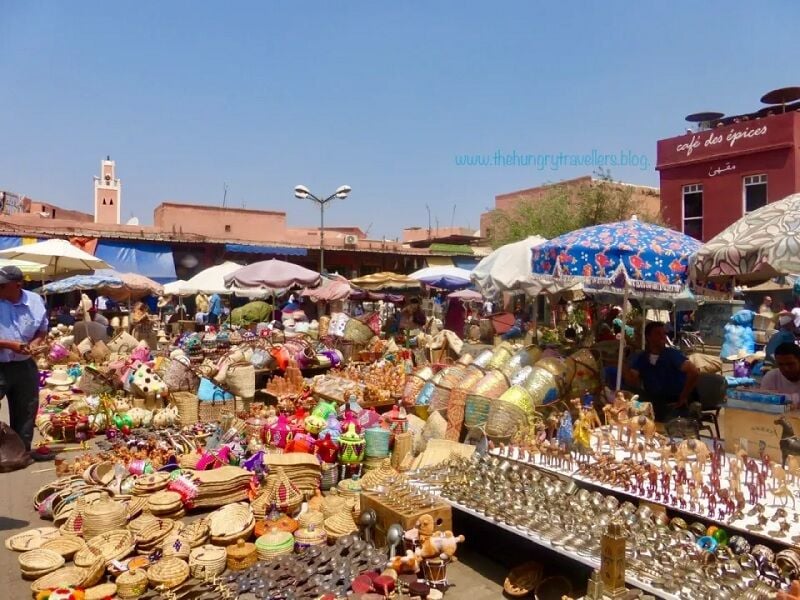Negotiations and bartering business in Thailand

Whether your interest lies in acquiring a high-end residence in the thriving city of Bangkok, or is searching for price-suitable deals at the energetic Chatuchak market, it is crucial to comprehend the skill of negotiation. The marketplace in Thailand is an active process of bargaining, wherein a properly-timed cordial smile and an agreeable counter-proposal can transform an average business interaction into a successful transaction.
The task of traversing through these dynamic markets and bartering for property dealings can appear challenging. However, there is no need for unease, as our aim is to provide you with superior strategies to perfect the art of negotiation. This will assist in fostering lucrative business collaborations in Thailand.
Understanding negotiations and bartering in Thailand
Immersing yourself in the dynamics of Thai-influenced business negotiations bolsters your success rate in various areas of this country’s bustling markets.
The role of culture in Thai negotiations
Thai culture permeates all kinds of interactions, not least in negotiating and conducting business transactions. The drive for reciprocity, respect for hierarchy, saving face, and the importance of relationships all play an integral role here.
The Thai communication style prioritises respectful transactions. Thais often employ indirect language and non-verbal cues to convey messages in negotiations, reflecting their cultural proclivity towards maintaining harmony and preventing disputes or embarrassment. Your understanding of these subtleties can provide an edge in these negotiations, granting a sense of mutual respect that Thai partners value.
Basic principles of bartering in Thailand
In Thailand’s vibrant markets, haggling is an accepted norm, particularly for goods such as bags and watches with inflated initial prices. Being skilful at bartering can knock a substantial amount off the starting price. For instance, vendors are typically ready to negotiate lower prices when an item isn’t top quality.
It’s all about gauging the situation. Counter-offers well below the asked price can be reasonable in some situations. Yet, even during the most stringent negotiations, maintaining amiability is advisable. Remember, successful haggling isn’t solely about the price drop, it’s also about reaching an agreement that leaves both sides satisfied.
Your friend might score an extra 100 Baht discount on the same item the next day, but there’s no need to beat yourself up over it. Each negotiation is a unique play of circumstances, and what matters is that you’re content with your deal.
Where and when to negotiate

In Thailand, the art of negotiation plays a crucial role in daily life, impacting everything from big-ticket items to flea market finds. Let’s explore where and when negotiations are most appropriate, accommodating seasonal variations, and how to effectively apply your negotiation skills in these scenarios.
Appropriate venues for bartering
In the Thai business environment, negotiation often forms part of the buying and selling process. Open-air markets, local shops, and even taxi services are all prevalent venues where bartering is standard practice. Sellers at these localities neither expect nor often receive the initial quoted price. You’ll mainly experience this dynamic in tourist-oriented markets where initial price quotes are invariably inflated.
When negotiating major purchases such as property, it’s beneficial to deal directly with the developer or seller, optimising the terms and price. Personal interactions like these, leverage not just the price but also establish trust and strong business relationships with the locals.
Understanding seasonal impacts on prices
Thailand’s seasonal variations considerably affect prices, especially in markets, and it’s vital to consider these changes before engaging in hefty negotiations. For instance, during the tourist high season, which typically runs from November through March, you might notice a slight increase in prices compared to the low season.
Moreover, some products or services may drop in price during slower parts of the day. Recognising these fluctuations allows you to negotiate more effectively, staying realistic within the realm of pricing, maintaining the cycle of business, and supporting the local economy.
Remember, despite the competitive aspect, Thai negotiations should be respectful exchanges where both parties leave the conversation feeling satisfied. Keep in mind that bargaining is part of a dance; it should be done with a smile and a friendly approach.
Practical tips for successful negotiating

Negotiation permeates various aspects of Thai culture and understanding its nuances can be vital for business success.
How to open and conduct negotiations
When initiating negotiations in Thailand, be courteous. Start by expressing your interest in the product or service. Employ phrases.
Remember to maintain respectful communication, and demonstrate your willingness to walk away if a reasonable price isn’t achieved, but stay open to counter-offers. Keeping your tone friendly and light-hearted can often assist in successful negotiating.
Common mistakes to avoid
Avoid showing too much enthusiasm for the item you’re bargaining for, as this could lead to a higher price. Similarly, proposing excessively low prices can be viewed as disrespectful.
Negotiating might not always be the best course of action. Consider, for instance, haggling over the price of a taxi fare. As mentioned in The Culture Trip, taxis should always use meters, leaving no room to negotiate the ride’s price. Instead of haggling, it’s suggested to find a taxi that uses a meter.
There are certain places where the line is blurred in terms of the appropriateness to negotiate, for example, shopping centres like Terminal 21 in the Asok area or Platinum Clothes Mall in the Pratunam district. It’s best to gauge the surrounding business atmosphere before deciding upon entering negotiations in such locations.
Bargaining etiquette and tactics

In the realm of negotiations and bartering business in Thailand, the importance of adopting local etiquette cannot be overemphasised. Abiding by these behavioural norms not only facilitates smoother conversation but also shows respect for Thai customs and traditions in the marketplace. Let’s delve into a couple of these essential norms.
The Importance of politeness and patience
Maintaining a courteous disposition forms the bedrock of Thai bargaining etiquette. Politeness, inculcated in a respectful tone of voice, humble body language, and usage of the local politeness particles, can greatly influence the outcome of your negotiation. Notably, shouting or becoming visibly upset, even when the negotiation becomes protracted, is considered offensive in Thailand.
The virtue of patience plays pivotal a role in politeness in Thai bartering. Resist rushing to reach a resolution. Instead, adopt a relaxed approach, showing a willingness to spend time discussing price, volume, or conditions. A steady, patient demeanour indicates your genuine interest in the transaction, which can ultimately lead to successful negotiation outcomes.
Strategic use of local language
Sprinkling in the local language adds a strategic edge to your negotiation toolkit in Thailand, making bargain encounters more personal and friendly. Understanding Thai phrases like too expensive and “What’s the max you can give me can strengthen your bargaining position. Present your counteroffers in Thai. This can foster mutual respect, initiate open dialogue, and even tip the balance towards a favourable deal. But remember, always use these phrases with a smile, reflecting the famous Thai spirit of ‘Sanuk’ or ‘fun’ in all activities, negotiations included.
Achieving proficiency in the local negotiation and trading mechanisms is crucial for the triumphant exploration of the Thai market. By honouring the practice of haggling and comprehending the complex operationality of Thai negotiations, one prepares oneself for immense success. It should be underscored, however, that the focus is not purely centred on securing an optimal deal. Instead, it also lays emphasis on establishing mutually beneficial relationships that can potentially nurture future prospects. Consequently, practitioners are advised to preserve their patience, courteousness, and receptiveness to counterproposals. Furthermore, to express genuine respect and preparedness to assimilate into Thai culture, they are encouraged to employ key Thai phrases during interactions. Upon mastering these skills, they will be exceptionally equipped to handle negotiations and bartering in the Thai context.
Want to know more, Thai banks urged to transact green by BoT to aid local businesses. While this figure is modest compared to the total outstanding loans in the banking sector, it demonstrates a growing interest in green loan products. According to Ronadol, several banks have pledged to achieve net-zero emissions by 2065, in line with Thailand’s national objectives.
Latest Thailand News
Follow The Thaiger on Google News:


























